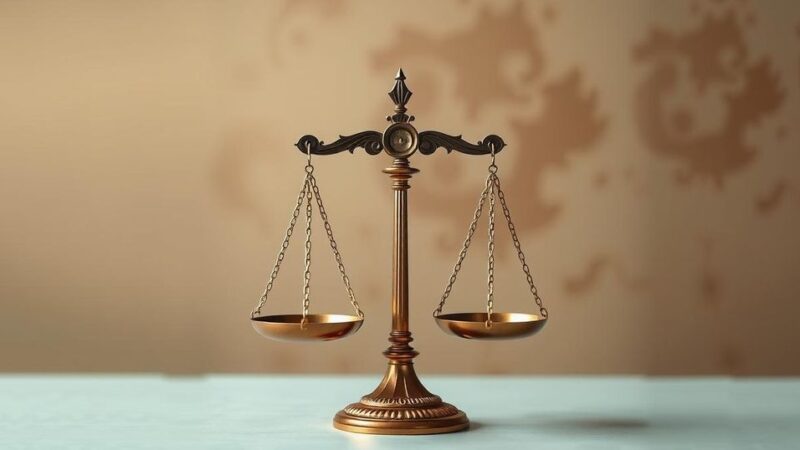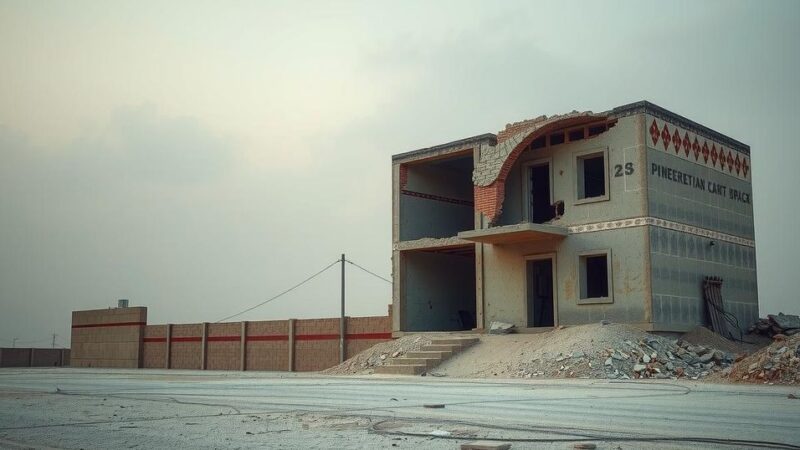The Ethiopian military continues its campaign of violence against the Amhara ethnic group, exemplified by the recent murder of a mother, Asbera Mohamednur, in front of her child. This incident is part of a disturbing pattern of attacks, including drone strikes on civilians and mass arrests, amid escalating tensions with the Fano militia. The international community’s response has been criticized as inadequate, with calls for accountability and intervention growing louder as human rights abuses rise.
The ongoing civil unrest in Ethiopia’s Amhara region has seen yet another tragedy unfold, specifically the brutal killing of Asbera Mohamednur, a mother, at the hands of the Ethiopian military. Eyewitnesses, who spoke under the veil of anonymity due to fears of retribution, recounted the harrowing sight in Shoa Asager Woreda, Soten Kebele, where they found Mohamednur’s body riddled with gunshot wounds, while her two-year-old child remained by her side, spared from injury yet deeply traumatized by the tragic scene. This incident highlights a worrying trend of violence against the Amhara ethnic group, with numerous accounts documenting assassinations, ethnic cleansing, and widespread attacks. Military operations utilizing drone strikes have targeted civilian areas in towns such as Finote Selam, Qora, and others, leading to numerous fatalities among innocents, including women and children. The conflict has intensified since August 2023 when clashes erupted between federal troops and the Fano militia, which claims to represent the interests of the Amhara community amid longstanding grievances regarding mistreatment and discrimination. The recent wave of mass detentions of Amhara individuals in Addis Ababa has been cited as evidence of Prime Minister Abiy Ahmed’s government’s hostile approach toward the Amhara populace. In the past week, civilian infrastructure, including schools, has been decimated by drone strikes, further fueling the distressing narrative of indiscriminate violence in the region. Reports from the Ethiopian Human Rights Commission corroborate claims of unlawful killings, bodily injuries, and the displacement of civilians, as well as the disruption of goods and services exacerbated by internet blackouts and looting incidents. Critics within the region have expressed concern regarding the global community’s apparent silence on the atrocities being committed. They argue that the inaction from international human rights organizations contrasts sharply with the evidence of horrific human rights violations, allowing the cycle of violence to persist unchecked. The situation has escalated to include extrajudicial killings, with military forces conducting door-to-door operations that lead to summary executions of suspected opposition supporters. The arbitrary mass arrest of thousands of Amhara individuals has resulted in overcrowded prisons where detainees suffer from inadequate medical care. Furthermore, the persecution faced by Christians in the region has intensified ethnic and religious tensions, exemplified by the destruction of numerous churches. In light of these events, human rights advocates have called for accountability for the Ethiopian military’s actions. “The Ethiopian government and military must be held accountable for their actions, and those responsible for these atrocities must face justice,” asserted one witness. “The world cannot stand by while innocent people are massacred for their ethnicity. Sanctions and international pressure must be applied to stop the violence and protect the Amhara people.” The despair of Mohamednur’s child, abandoned alongside her lifeless body, underscores a profound need for justice and humanitarian intervention. Amnesty International has also released statements condemning the Ethiopian military’s actions, alleging mass arbitrary detentions throughout the Amhara region since late September, further emphasizing the urgent necessity for a global response.
The Ethiopian conflict centers around ethno-political tensions, particularly involving the Amhara ethnic group and the federal government. The Fano militia, claiming to represent the Amhara community, has engaged in clashes with federal forces, citing years of marginalization and violence against members of their ethnic group. The situation has deteriorated significantly since mid-2023 with reports of systematic violence, mass detentions, and human rights abuses against ethnic Amharas, prompting calls for international attention and intervention. This context is crucial in understanding the recurring violence and the urgent plea for action to safeguard the Amhara people and address their grievances.
The ongoing violence in Ethiopia’s Amhara region, exemplified by the brutal murder of Asbera Mohamednur, reflects an alarming trend of ethnically motivated attacks and systemic human rights violations. The international silence on these matters only serves to embolden perpetrators while leaving victims vulnerable. Human rights advocates are urgently calling for accountability and intervention to halt the atrocities committed against the Amhara people. The tragic plight of families affected by violence necessitates immediate and decisive action from the global community to protect human rights and uphold justice.
Original Source: www.dailynewsegypt.com





